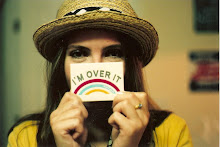

Food on a basic level is relatively easy to define, the dictionary says this: “any nourishing substance that is eaten, drunk, or otherwise taken into the body to sustain life, provide energy, promote growth” I generally agree with this statement, food is about sustaining life and energy. On its most basic level, scientifically that is what food is, and does for all life. Humans however have much stronger connections to food then I think most people realize. Food has so many powerful connections to the human experience. Food defines people, connects people, and it can conversely divide people, but the importance we place on food exhibits itself in our religions, cultural experiences, and our ties to home. So when the dictionary claims that food is a nourishing substance it cannot just mean that food keeps us alive, but it nourishes our spirituality, our sense of community, and our day to day feelings. Food defines our cultures, religions and our ties to our community and home life. For instance the United States is a country made of a large immigrant population, and you can see it reflected plainly in our food. While many restaurants are derivatives of the food people brought over from their original countries’ and cultures of origin, the United States has a plethora of diverse food and that defines different cultural groups. An outsider would probably recognize that culture more by the type of food they made, then by the flag of the country where that person’ is from. Food is a huge indicator of cultural background and origin.
In today’s modern society people think less about old religious rules about food, (eating kosher, no meat on Fridays, ect) and are focusing more and more on dieting, health food, fast food, organic food, natural food, vegetarian, vegan, and a million other choices for their personal diets, based on just as many reasons for eating that specific way. Some people choose to the way they eat for political reasons, while others for health and diet reasons. While our foods have a strong connection to our cultural past and present, now more then ever people are asking questions about where our food comes from and how its produced. The question of organic, natural and processed foods is at the forefront of people’s minds, and politically driven food purchases are starting to take root. The debate about organic food rages on, many believe organic food to be healthier but contradicting studies have shown no conclusive evidence that this is true. Same with environmental impact, many companies and websites claim that organically grown food is better for the environment, because of the lower ecological impact as compared to conventional farming; however conversely evidence shows that organic farming is much less energy efficient then organic.
The beauty behind food is almost harder to define then food itself. Why people think something is beautiful is so personal and more then just athletics that I don’t even want to attempt to define beauty. Food has that relates so intensely to our relationship with food that its hard to describe. There is a beauty in the athletics of the natural world, the colors, the range of shapes, smells and tastes, but there is also an intense beauty in the way people cook and manipulate food. The process behind cooking has an deep relationship too ritual that speaks very closely to our relationship with cultural and heritage.

No comments:
Post a Comment